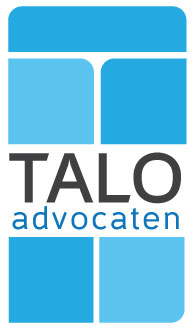Gepubliceerd op 10/03/2025
The Key to Transparency and Good Governance
The shareholders’ right of inspection and oversight is an essential tool to ensure transparency and good governance within a company. In larger enterprises, this right is exercised by an appointed auditor. However, in smaller companies, it is the shareholders themselves who exercise this oversight — a topic we will explore further in this article.
Scope of the Individual Right of Inspection and Oversight
When no auditor has been appointed, each shareholder individually holds an investigative and supervisory authority (Article 3:101 of the Code of Companies and Associations / CCA). Shareholders may always be assisted or represented by an accountant in this capacity.
The scope of this right is equivalent to (but also limited by) the legal duties of the auditor (Article 3:68 CCA), namely:
- Supervision of the financial situation
- Supervision of the annual accounts
- Supervision of the regularity of transactions
To properly carry out this oversight, shareholders may, at any time, review the company’s books, letters, minutes, and generally all documents and records. Subsequently, shareholders can request clarifications and information from the board and carry out any verifications they deem necessary. For example, a shareholder may ask the board to confirm the company’s outstanding claims or debts with the involved third parties.
Not Without Limitations
However, the right of inspection is not without limitations. Shareholders may only exercise this right at the company’s registered office. The documents may not be removed from the premises or copied, though taking notes is permitted.
There is ongoing debate in case law and legal doctrine regarding the precise scope of this right. While some argue that the right of inspection and oversight is limited to the current fiscal year — or possibly the previous fiscal year as long as the associated annual accounts have not yet been approved — others prefer a broader interpretation also applicable to auditors. According to this broader view, the right of supervision extends to all previous fiscal years for which the annual accounts have already been approved, provided this is relevant for assessing the current fiscal year. Jurisprudence, however, offers no definitive answer, as solutions often depend on the specific facts of each case.
Conclusion
The shareholders’ right of inspection and oversight in smaller companies without an auditor is an important mechanism for supervision and transparency. While this right provides the opportunity to review essential documents, it also requires active involvement and a critical attitude from shareholders to safeguard the company’s financial health and governance. The absence of an auditor makes it all the more necessary for shareholders to fully exercise their rights and remain vigilant for potential irregularities.
At Talo Law Firm, we understand the importance of transparency and good governance for the success of your company. Our team of specialized lawyers is ready to support shareholders in exercising their rights of inspection and oversight. Whether you need assistance in requesting and analyzing documents, legal advice on the scope of your rights, or support in consultations with the board — we offer expert and practical solutions.
Feel free to contact us for a non-binding consultation. Together, we will ensure that your shareholder rights are fully safeguarded and that the financial health and transparency of your company remain secure.


